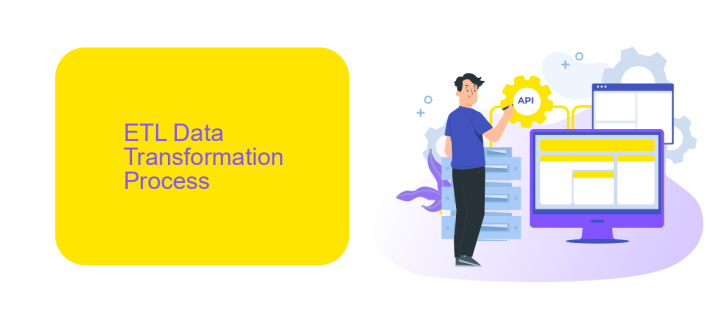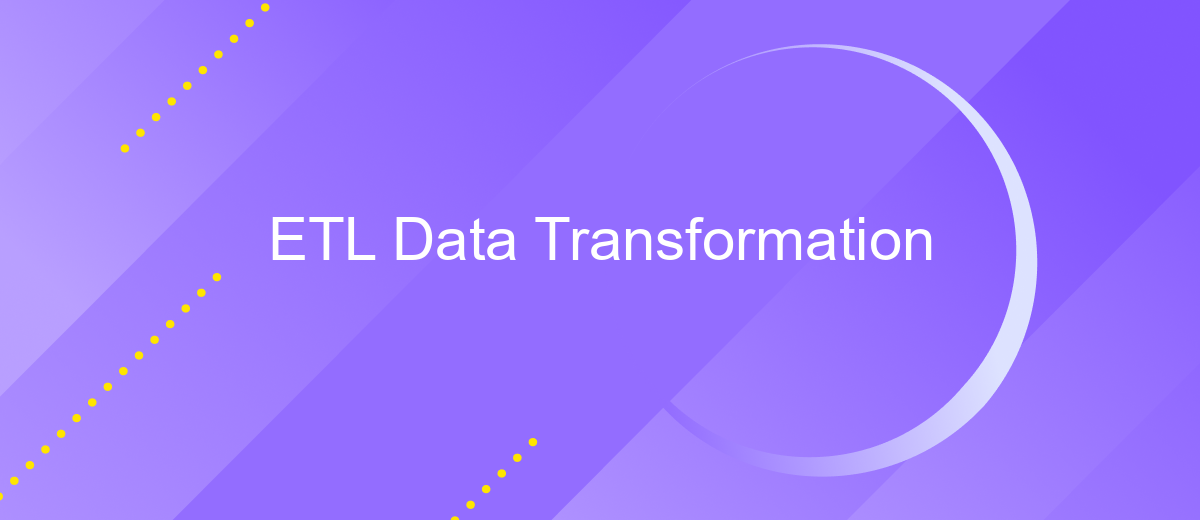ETL Data Transformation
ETL (Extract, Transform, Load) data transformation is a crucial process in data management that involves extracting data from various sources, transforming it into a suitable format, and loading it into a target database or data warehouse. This process ensures data consistency, quality, and accessibility, enabling organizations to make informed decisions based on accurate and timely information.
Introduction
ETL (Extract, Transform, Load) data transformation is a critical process in data management and analytics. It involves extracting data from various sources, transforming it into a suitable format, and loading it into a data warehouse or another destination. This process ensures that data is clean, consistent, and ready for analysis, enabling organizations to make informed decisions.
- Extract: Collecting data from different sources such as databases, APIs, and flat files.
- Transform: Cleaning, enriching, and converting data into a usable format.
- Load: Inserting the transformed data into a target system like a data warehouse or cloud storage.
With the growing complexity of data ecosystems, tools like ApiX-Drive can simplify the integration process. ApiX-Drive automates data extraction and transformation, reducing the manual effort required to manage data workflows. By leveraging such services, businesses can streamline their ETL processes, ensuring timely and accurate data availability for their analytical needs.
ETL Data Transformation Process

ETL (Extract, Transform, Load) Data Transformation is a critical step in data processing that involves converting raw data into a usable format for analysis. The process begins with extracting data from various sources, which can include databases, APIs, and flat files. Once extracted, the data undergoes transformation, where it is cleaned, normalized, and enriched to meet the specific requirements of the target system. This step ensures data consistency, accuracy, and compatibility, making it ready for the final loading phase.
During the transformation phase, tools like ApiX-Drive can be particularly useful. ApiX-Drive facilitates seamless integration between different systems, allowing for automated data extraction and transformation. It supports a wide range of data sources and provides a user-friendly interface for configuring complex workflows. By leveraging such services, organizations can streamline their ETL processes, reduce manual intervention, and ensure high-quality data transformation. Ultimately, this leads to more efficient data analysis and better decision-making.
Tools and Techniques

When it comes to ETL (Extract, Transform, Load) data transformation, selecting the right tools and techniques is crucial for efficient data processing. Various platforms and services are available to streamline the ETL process, ensuring data integrity and accuracy.
- Data Integration Platforms: Tools like Apache NiFi and Talend provide robust solutions for integrating data from multiple sources.
- Data Transformation Tools: SQL, Python, and R are commonly used for data transformation tasks, allowing for complex data manipulation and analysis.
- Automation Services: ApiX-Drive offers seamless integration and automation of workflows, reducing manual intervention and enhancing productivity.
Choosing the appropriate tools and techniques depends on the specific requirements of your ETL process, such as data volume, complexity, and frequency of updates. By leveraging these tools, organizations can ensure smooth and efficient data transformation, ultimately leading to better decision-making and operational efficiency.
Best Practices

Implementing best practices in ETL data transformation is crucial for ensuring data integrity, efficiency, and scalability. To achieve optimal results, it is essential to follow a structured approach that includes thorough planning, monitoring, and continuous improvement.
First, always start with a clear understanding of your data sources and the required transformations. This involves mapping out the data flow and identifying potential bottlenecks or issues that may arise during the ETL process. Proper documentation and regular updates to this plan can help in maintaining consistency and accuracy.
- Automate as much of the ETL process as possible to reduce manual errors.
- Regularly monitor and audit data transformations to ensure data quality.
- Use scalable tools and services like ApiX-Drive to manage integrations efficiently.
- Implement robust error handling and logging mechanisms to quickly identify and resolve issues.
Finally, always prioritize data security and compliance with relevant regulations. Regularly update your ETL processes to incorporate new best practices and technologies, ensuring that your data transformation remains efficient and reliable over time.
- Automate the work of an online store or landing
- Empower through integration
- Don't spend money on programmers and integrators
- Save time by automating routine tasks
Conclusion
In conclusion, ETL data transformation is a crucial process for any organization looking to make the most out of its data. By efficiently extracting, transforming, and loading data, businesses can ensure that their data is accurate, consistent, and readily available for analysis. This not only enhances decision-making but also drives operational efficiency and competitive advantage.
Moreover, the integration of services like ApiX-Drive simplifies the ETL process by automating data flows between various applications and systems. This reduces the need for manual intervention and minimizes errors, allowing organizations to focus on strategic initiatives rather than data management. As businesses continue to embrace digital transformation, leveraging sophisticated ETL tools and services will be essential for maintaining data integrity and achieving long-term success.
FAQ
What is ETL in data transformation?
Why is data transformation important in ETL?
What are common challenges in ETL data transformation?
How can automation tools help in ETL processes?
What are some best practices for ETL data transformation?
Apix-Drive is a universal tool that will quickly streamline any workflow, freeing you from routine and possible financial losses. Try ApiX-Drive in action and see how useful it is for you personally. In the meantime, when you are setting up connections between systems, think about where you are investing your free time, because now you will have much more of it.


